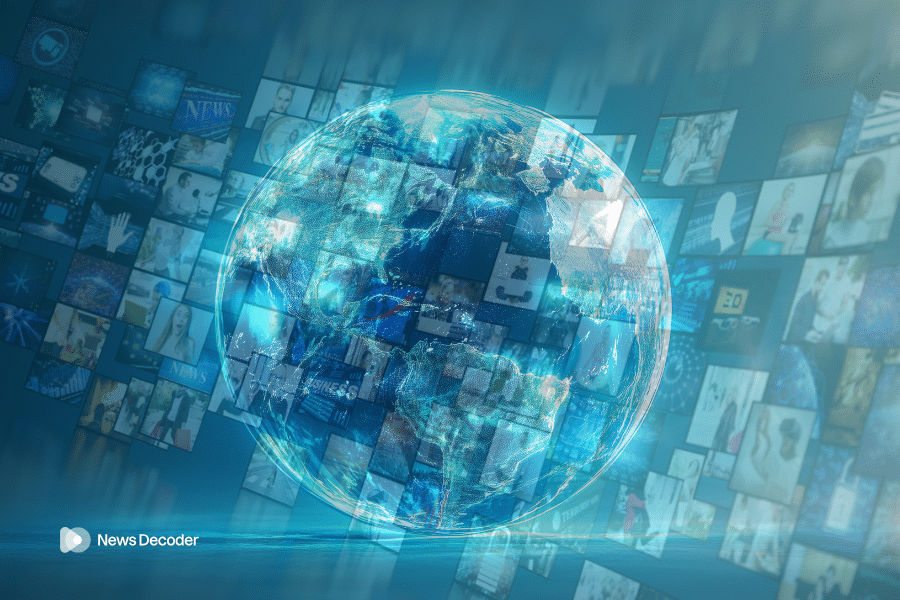Listen to the article
As UNESCO’s Global Media and Information Literacy Week unfolds between October 24 and 31, organizations worldwide are coming together to address the critical challenges facing information consumers in the digital age. This year’s theme, “Minds Over AI — MIL in Digital Spaces,” reflects the growing concern about artificial intelligence’s impact on media consumption and information reliability.
The annual event, first established by UNESCO in 2011, has become an important platform for educators, journalists, technology companies and advocacy groups to share strategies for building resilience against misinformation and promoting critical thinking skills in increasingly complex information ecosystems.
News Decoder, joining the global conversation, has announced plans to release a special series of articles throughout the week, exploring various dimensions of media literacy in contemporary society. The organization will draw on its extensive coverage of related topics from the past year, creating a comprehensive resource for readers seeking to navigate today’s challenging information landscape.
The timing of this year’s initiative is particularly relevant as AI technologies continue to transform how news and information are created, distributed and consumed. With the proliferation of AI-generated content, deep fakes, and increasingly sophisticated misinformation campaigns, the ability to critically evaluate information sources has never been more essential.
Media literacy experts point to several converging factors making this year’s focus especially urgent. The rapid advancement of generative AI tools has democratized content creation while simultaneously making it harder to distinguish between human and machine-created information. Meanwhile, declining trust in traditional news sources has left many turning to unverified channels for information.
“We’re witnessing a fundamental shift in how information flows through society,” explains Dr. Melissa Chen, director of the Center for Media Studies at Harvard University. “When anyone with a smartphone can create and distribute what appears to be legitimate news content, the public needs more sophisticated tools to evaluate what they’re seeing.”
UNESCO’s choice of theme also acknowledges the double-edged nature of artificial intelligence in the information space. While AI tools can help identify misinformation and translate content across languages, they also enable the creation of convincing fake news at unprecedented scale and speed.
The week-long event will feature virtual panels, workshops, and educational resources designed to help people of all ages develop better information verification skills. Participants will explore topics ranging from fact-checking techniques to understanding how social media algorithms shape information exposure.
News Decoder’s planned content series will cover the full spectrum of media literacy challenges, from basic fact-checking methodologies to more complex analyses of how social media platforms influence public discourse. The organization will also examine both beneficial and problematic aspects of artificial intelligence in the information ecosystem.
Media literacy advocates emphasize that these skills are no longer optional but essential components of modern citizenship. As digital spaces become increasingly dominant channels for news consumption, particularly among younger generations, the ability to critically assess information has implications for democratic participation, public health, and social cohesion.
Educational institutions worldwide have begun incorporating media literacy into curricula, recognizing that traditional education must evolve to prepare students for information challenges that didn’t exist a generation ago. However, experts note significant gaps remain in media literacy education, particularly among older populations and in regions with limited digital infrastructure.
“The digital divide isn’t just about access to technology anymore,” notes Jamal Ibrahim, UNESCO’s special advisor for information literacy. “It’s increasingly about having the knowledge and skills to use that technology effectively and safely. This is why events like Global Media and Information Literacy Week are so important for raising awareness and sharing best practices.”
As the week unfolds, organizers hope to spark lasting conversations about how individuals, communities, and institutions can better prepare for a future where distinguishing fact from fiction will likely become even more challenging as AI technologies continue to advance.
Fact Checker
Verify the accuracy of this article using The Disinformation Commission analysis and real-time sources.




9 Comments
While AI can be a powerful tool, we need to be vigilant about its potential to spread misinformation or manipulate media. I’m curious to see the perspectives and strategies shared during Global Media Literacy Week.
Media literacy is so critical in this age of information overload and AI-driven content. I’m glad to see global initiatives like this focused on equipping people with the skills to think critically and spot misinformation.
Addressing the challenges of the digital age through media literacy initiatives is vital. I’m interested to learn more about the specific programs and solutions being proposed during this global event.
In an era of information overload, equipping people with media literacy skills is crucial. I hope this week’s events will empower individuals to think critically about the content they consume online and in traditional media.
Addressing AI’s impact on media consumption is a smart focus for this year’s Global Media Literacy Week. As AI systems become more advanced, it’s essential that people understand their potential biases and limitations.
Agreed. Developing critical thinking skills to navigate complex information ecosystems is a key part of media literacy. This week’s events should provide valuable resources for that.
It’s great to see News Decoder contributing to this important global conversation. Their in-depth coverage on media literacy topics will make for a compelling resource for readers during this initiative.
As AI becomes more prevalent in media and content creation, it’s essential that the public understands how to identify potential biases and fact-check information. This week’s focus on ‘Minds Over AI’ is very timely.
Absolutely. Developing critical thinking skills to navigate AI-driven content is a crucial part of media literacy in the modern world.